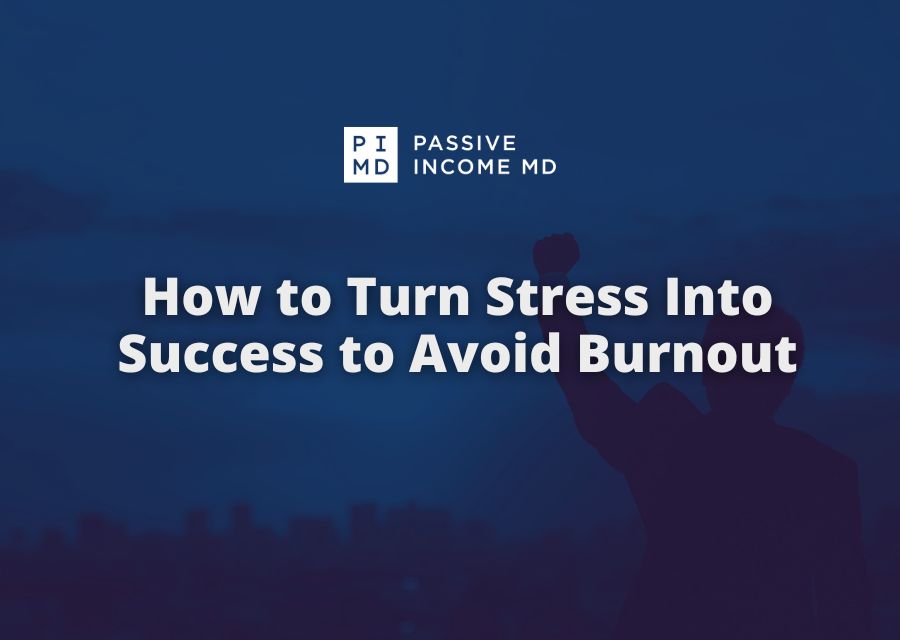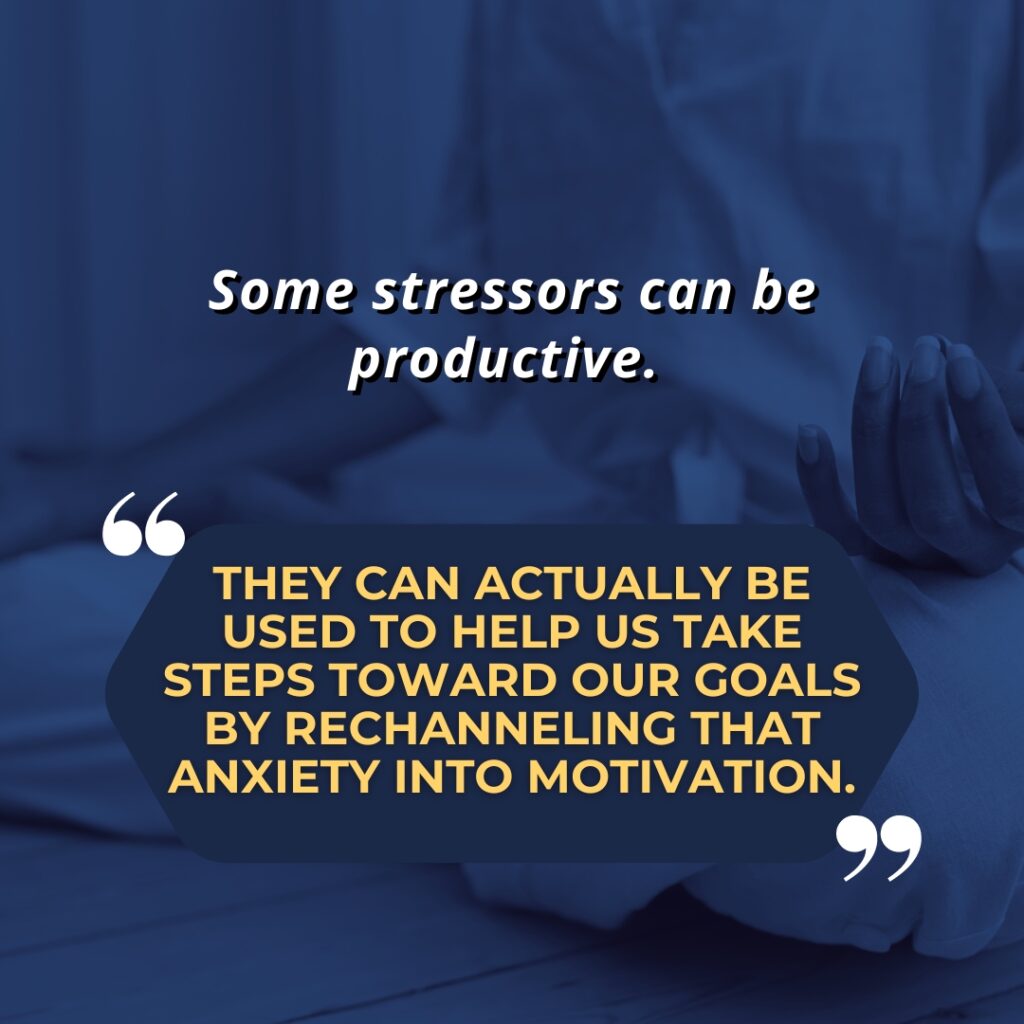
How to Turn Stress Into Success to Avoid Burnout
This post may contain links from our sponsors. We provide you with accurate, reliable information. Learn more about how we make money and select our advertising partners.
Have you heard of Sustainable Success? It all starts by being able to turn challenges to changes and stress to success.
It means that achieving growth and profitability in business and in life is possible while maintaining a healthy balance of what matters most, whether that’s your family, hobbies and passions, work, or anything in between. That sounds pretty ideal to me.
It is my belief that when we let stress build up into burnout, we ruin our chance at Sustainable Success.
Physician burnout isn’t a new topic. In the last year, 54% of physicians reported being burned out in the current healthcare climate. Of that total, only 12% sought help for their depression, fatigue, and feelings of hopelessness. That means the healthcare industry is facing a crisis of burned-out physicians who feel like they don’t have a place to turn.What causes burnout? To name a few things, we experience long hours, limited resources, bureaucratic tasks, a lack of autonomy, and unrealistic expectations. These are at the heart of it. But more importantly, it’s how these factors affect us—how we perceive and react to these stresses. When we experience too much stress, burnout sets in.
While self-care is important it may not be enough. Approaching your stress with six Sustainable Success strategies might act as the preventative medicine to help keep you on track to your life goals.
Like so many other physicians do now, I did feel stressed quite a bit at work. That ended when I learned how to make my stress work for me—to sustain through stress without becoming burned out. Today, we are going to identify stressors in our lives and create a strategy for Sustainable Success.
Table of Contents
Identify the Stressors in Your Life
Stress management is important, yes, but the common tips we’ve all heard don’t always work. Getting more rest or exercise, scheduling time to meditate, or improving diets can all be effective, but if we don’t have time to do them, we are at an impasse.
A better starting strategy is to identify our stressors. To name is to tame, and stress is no different. Identifying stressors helps us determine which stressors to harness into positive energy and which to eliminate—which stressors are productive and which are not.
Turn Stress Into Success
You read that correctly: Some stressors can be productive. They can actually be used to help us take steps toward our goals by rechanneling that anxiety into motivation.
Stress gets a bad rap. Not all stress is bad. What stress is good stress? For one thing, stress that motivates you toward something you want is good. Stress that has set solutions is good. When you identify your stressors, you want to keep the good stress.
And what is bad stress? It’s stress that makes you feel physically sick, keeps you from sleeping, or has taken over your life and removed you from any sense of happiness or fulfillment. It goes without saying, you need to do what you can to use Sustainable Success strategies to get bad stress out of your life.

Learn six valuable strategies that will help you prevent burnout and have a more fulfilling life by SUBSCRIBing AND TUNING IN TO OUR PODCAST:
#200 Sustainable Success: 6 Ways Not to Burn Out ft. Dr. Peter Kim
Potential Benefits of Stress
For the good stress you keep around, it’s important to look at the benefits. Because stress can motivate you to go after what you want, and because most life goals are a challenge, the biggest potential of good stress is achieving your dreams.
Good stress can also make you more resilient. As your stress tolerance grows, you’ll be ready to take on new challenges as they come. In this sense, from a neuroscience standpoint, good stress keeps your brain working and improving. Dr. Daniela Kaufer, Associate Professor of Integrative Biology at UC Berkeley has argued that, “We always think about stress as a really bad thing, but it’s not,” continuing that “some amounts of stress are good to push you to the level of optimal alertness and performance, both behavioral and cognitive.”
Finding Sustainable Success
Most of us grow in an unbalanced way that generates stress. What does that mean? If your life goals include growing your income to build the life that you want, then there’s a chance that focusing on your job creates a tradeoff where you neglect your passions or family, creating stress with those damaged relationships. As stress builds, we are less fulfilled. And being unbalanced is not what we want, nor was that our original goal.
So how can we reduce, prevent, or redirect stress? Let’s look at the six elements of Sustainable Success to find out more.
Create a Long-Term Vision
When it comes to a long-term vision, you have to have a clear goal of what you want your life to look like. For me, the end goal was always having enough income to do whatever I wanted. I didn’t want a life where my vacations were determined by my PTO approval.
When a clear long-term vision is named and defined, it’s more likely that you’ll fight for it. It helps you dictate what kinds of action to take, no matter what’s happening in the short term. Challenges become mere bumps in the road toward a longer path toward your long-term vision.
Responsible Growth
You, like me, probably want to do so many things. We want to grow our income, have great relationships with our family and friends, pursue hobbies, and so much more. These aren’t bad aspirations at all. But the more we do, the more we spread ourselves thin, leading to burnout.
When growth gets in the way of some aspects of your life, it hasn’t been responsible growth. Have you ever heard a tech CEO say something like, “I let the company grow too fast” when explaining why they filed for bankruptcy? It’s a similar situation with individuals. Growth, on the surface, seems like a great idea. But when we take on more than we can handle, the associated stressors will lead us to a proverbial bankruptcy, sacrificing parts of our life we didn’t otherwise plan to lose.
Building a Firm Foundation
One of the greatest stress reducers is what’s called building a firm foundation. That means slowly building toward your goals one step at a time and in the correct order so that you know, if something goes wrong, you have something to fall back on. Think about the danger of building a house without a foundation—as stressors build, the whole thing will topple over. But if you have a strong foundation, losing one piece of siding won’t mean the entire structure will fall.
While you look ahead and prioritize growth, make sure you set your foundation and build your life piece by piece responsibly. Doing so will ensure a reduced-stress environment compared to the alternative.

Subscribe to receive the 7 Steps you can follow to achieve Financial Freedom
If financial freedom is your goal, there’s no better time to get started than right now.
Unlock actionable steps that you can take every day to fine-tune your goals, discover your interests, and avoid costly mistakes on your financial freedom journey.
Work-Life Harmony
There’s this idea of a work-life balance, but let’s think about that phrase. It assumes that our work and personal lives are opposing forces. Don’t let your work and your personal life be two completely separate things. Instead, pursue work-life harmony, where your work is a major part of your identity along with the other aspects of your life, like your family, friends, and hobbies.When you identify with your work, it provides a greater sense of purpose and fulfillment for you, giving you the fuel to live the other parts of your life. When you have a great day with the family, you walk into work energized and ready to face any problem. Why can’t the same be true in reverse? If you have a great day at work because your job gives you purpose, you will then return home ready to transfer that positive energy to your family. When you experience harmony in your life, everything is working together rather than in opposition.
Continuous Learning
Physicians hit a wall around that seven-to-ten year mark. Being an attending, it seems like you’re not growing anymore. Your practice is up and running, and the challenge isn’t quite there.
Before this, our entire experience in medicine had been that of hitting new milestones, striving and pushing, and continuously learning. It turns out that life is more fun when we are continuously learning. When discontent creeps, that’s the signal telling you “it’s time to learn a new skill.” Maybe it’s in a new area or passion you want to develop, maybe it’s a side hustle. It’s up to you. But don’t ignore that feeling of discontent. Instead, use it to motivate yourself to learn something new.
Adaptability
Life doesn’t always go as planned. When that happens, the most successful people know how to turn the unexpected into opportunity, to pivot as they learn new things.
Without adaptability, we would wallow in the stresses of what we didn’t accomplish. But when we pivot, we set new goals, create a new purpose, and redirect the stress that would’ve otherwise held us back from our next great achievement.
Turn Challenges Into Changes and Stress Into Success
Stress doesn’t have to control you. Quite the opposite.
Spending too much energy on stressing over things that you can’t change leaves you unbalanced and without room for growth even in the face of success. It leaves us unsatisfied. And as Tony Robbins said, “Success without fulfillment; that’s the ultimate failure.”
Shed bad stress and tap into your good stressors to motivate you toward achieving your goals. Remember, everyone encounters stress, but taking charge of how you view it and use it is completely within your grasp.
We here at Passive Income MD can help you achieve Sustainable Success, and we hope to collaborate with your success at one of our many conferences soon. Until then, thank you for allowing me to be part of your journey.
Peter Kim, MD is the founder of Passive Income MD, the creator of Passive Real Estate Academy, and offers weekly education through his Monday podcast, the Passive Income MD Podcast. Join our community at the Passive Income Doc Facebook Group.
Further Reading
Disclaimer: The topic presented in this article is provided as general information and for educational purposes. It is not a substitute for professional advice. Accordingly, before taking action, consult with your team of professionals.

